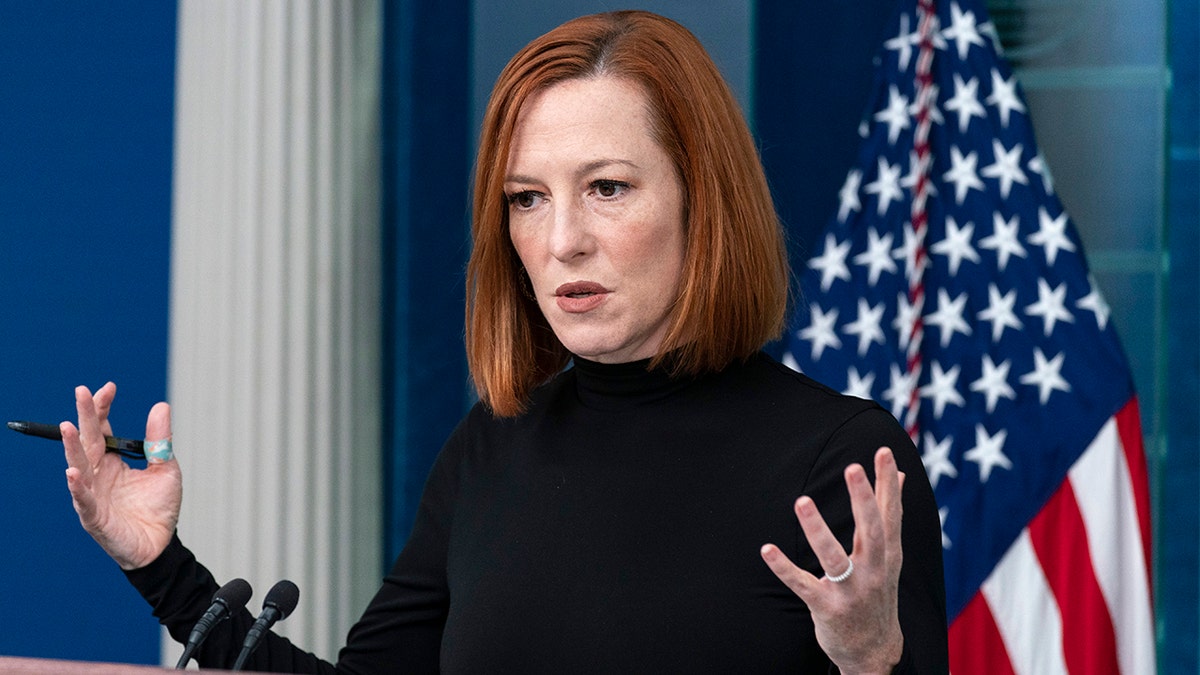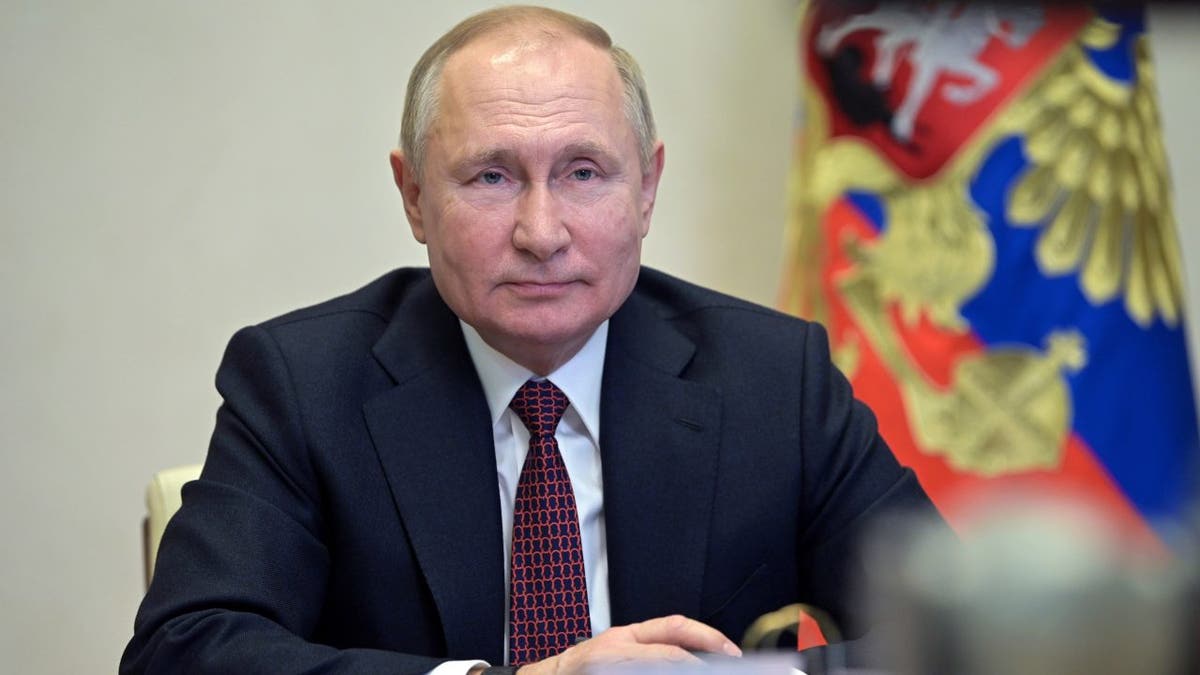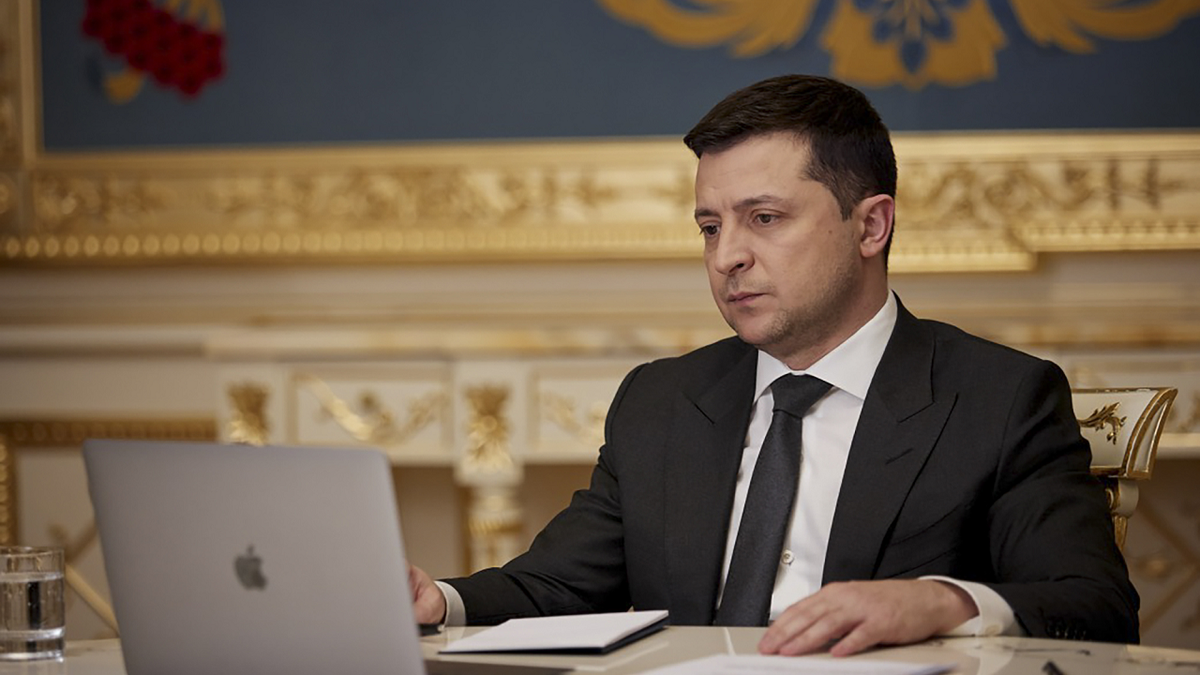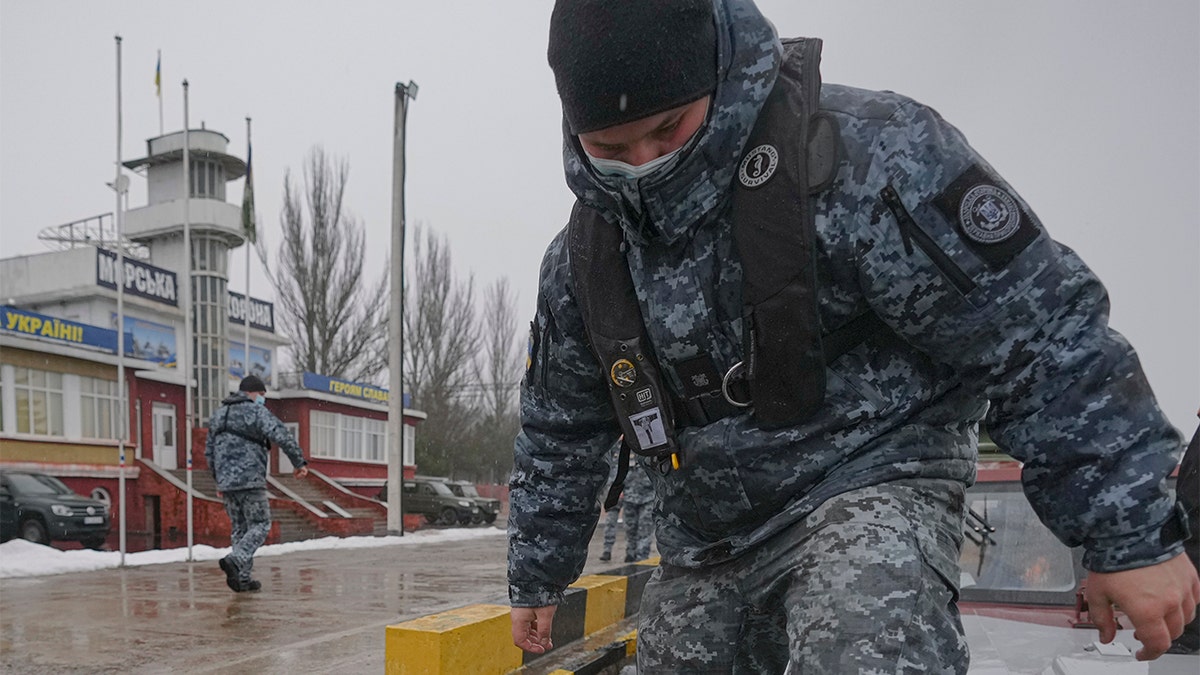Pentagon officials say US on high alert awaiting Putin's next step
National security correspondent Jennifer Griffin on how the Pentagon is planning to respond to potential Russian invasion of Ukraine.
The White House is backing away from its characterization that Russia’s invasion into Ukraine is "imminent," saying officials "still don't know" if Russian President Vladimir Putin has "made a decision" on incursion.
Biden administration officials, last week, described Russia's invasion of Ukraine as "imminent," as thousands of Russian troops continued to line the Ukrainian border, but on Tuesday, U.S. Ambassador to the United Nations Linda Thomas-Greenfield said she wouldn't describe a potential incursion in that way, as officials still continue to seek a diplomatic resolution.
US TO MOVE MORE TROOPS TO NATO'S EASTERN FLANK AMID RUSSIA-UKRAINE SITUATION
During the White House press briefing Wednesday, press secretary Jen Pskai said she has not used the term "imminent" to describe the invasion in more than a week.
"I used that once. I think others have used that once, and then we stopped using it because I think it sent a message that we weren’t intending to send, which was that we knew that President Putin had made a decision," Psaki said. "We still don’t know that he’s made a decision."
President Biden last week, during a call with Ukrainian President Volodymyr Zelenskyy, warned of a "distinct possibility" of a Russian invasion in February.

White House press secretary Jen Psaki speaks with reporters in the James Brady Press Briefing Room at the White House, Wednesday, Feb. 2, 2022, in Washington. (AP Photo/Alex Brandon)
Zelenskyy, though, said Ukraine is "not seeing any escalation bigger than before," and said the Russian build-up of troops could be an attempt by Moscow to exert "psychological pressure" and sow panic.
And Russia has denied it intends to launch an attack. Russian officials said NATO must promise not to allow Ukraine to join the alliance, among other demands, which the United States and NATO have rejected.
Russia Ambassador Vasily Nebenzya on Monday slammed the West, claiming it is trying to will a Ukrainian war into existence.
"The deployment of Russian troops within our own territory has frequently occurred on varying scales before and has not caused any hysterics whatsoever," he said. "The discussions about a threat of war is provocative in it of itself."
Nebenzya added: "You are almost calling for this, you want it to happen, you are waiting for it to happen as if you want to make your words become a reality."

Vladimir President Vladimir Putin in Moscow, Russia, Tuesday, Jan. 25, 2022. (Sputnik, Kremlin Pool Photo via AP)
And despite the White House’s shift in messaging about "imminent" invasion, the Pentagon on Wednesday announced that the U.S. will deploy 3,000 more troops to Romania, Poland and Germany.
Last week, Defense Secretary Lloyd Austin put 8,500 U.S. troops on heightened preparedness, as President Biden and his national security officials weighed where to send troops in Eastern Europe to aid Ukraine as part of a broader NATO effort, while Russian President Vladimir Putin threatened incursion.
Pentagon press secretary John Kirby, during a briefing with reporters Wednesday, said the United States "stands shoulder to shoulder with our NATO allies."
"The current situation demands that we reinforce the deterrent and defensive posture on NATO's eastern flank," Kirby said.
The 3,000 troops include 2,000 from 82nd Airborne Division and 18th Airborne Corps, based in Fort Bragg, North Carolina, and 1,000 who are currently based in Germany. The troops from Germany will deploy to Romania, the 82 Airborne soldiers will go to Poland, and the 18th Airborne forces will go to Germany.
"These forces are not going to fight in Ukraine," Kirby maintained. "They’re going to ensure a robust defense of our NATO allies."
There are already approximately 900 U.S. troops in Romania.
"This force is designed to deter aggression and enhance our defensive capabilities, and we expect them, as I said, to move in the coming days," Kirby said.
He added that the force from Fort Bragg is "trained and equipped for a variety of missions to deter aggression and to reassure and to defend our allies."

Ukrainian President Volodymyr Zelenskyy answers questions from the media in Kyiv, Ukraine, on Friday. (Ukrainian Presidential Press Office/AP)
But Kirby said that the 8,500 troops that Austin put on heightened standby "are not currently being deployed, but remain ready to move if called for the NATO response force or as needed for other contingencies as directed by the secretary or by President Biden."
RUSSIA-UKRAINE: US SENDING MORE TROOPS TO NATO'S EASTERN FLANK: LIVE UPDATES
When asked whether the U.S. is moving troops due to evidence Putin plans to cross Ukraine’s borders, Kirby maintained that it is "important that we send a strong signal to Mr. Putin and frankly, to the world that NATO matters to the United States, it matters to our allies."
"And we have ironclad Article Five commitments," Kirby added. "An attack on one is an attack on all."
At this point, though, the Pentagon said they have "clear evidence every day" that Putin is continuing to "destabilize the environment by adding more forces into the western part of the country and along Belarus, in addition to additional naval activity in the Mediterranean and North Atlantic."

A Ukrainian marine border guard walks on the deck of a boat after a patrol in the Sea of Azov, waters near Mariupol, Donetsk region, in eastern Ukraine, Wednesday, Feb. 2, 2022. (AP Photo/Vadim Ghirda)
"He clearly is providing himself many options, lots more capabilities for exactly what purpose? We don't know right now. And because we don't know exactly what his purpose is, we want to make sure we're ready on the NATO front to defend our allies," Kirby said.
Kirby said the Pentagon is "continuously reviewing our posture," and may soon have "additional posture decisions to announce, including movements that are part of ongoing military exercises."
"This is not a sum total of the deterrence actions we will take or those to reassure our allies," he said. "We stand united. We have said that repeatedly. We say it again today. These movements are unmistakable signals to the world that we stand ready to reassure our NATO allies and deter and defend against any aggression."
Kirby, though, doubled-down on the sentiment expressed by Austin and Chairman of the Joint Chiefs of Staff Gen. Mark Milley last week.
"We do not believe conflict is inevitable," Kirby said. "The United States in lockstep with our allies and partners, has offered Russia a path to de-escalate."
He added: "But we will take all prudent measures to assure our own security and that of our allies."
Last week, top Pentagon officials said the build-up of Russian troops along Ukraine's border is the largest since the Cold War, and warned that conflict in Eastern Europe would be "horrific," but stressed that it is "not inevitable," maintaining that there is "still time and space for diplomacy," as the Kremlin continues to threaten further incursion in Ukraine.
Fox News' Jennifer Griffin and The Associated Press contributed to this report.






